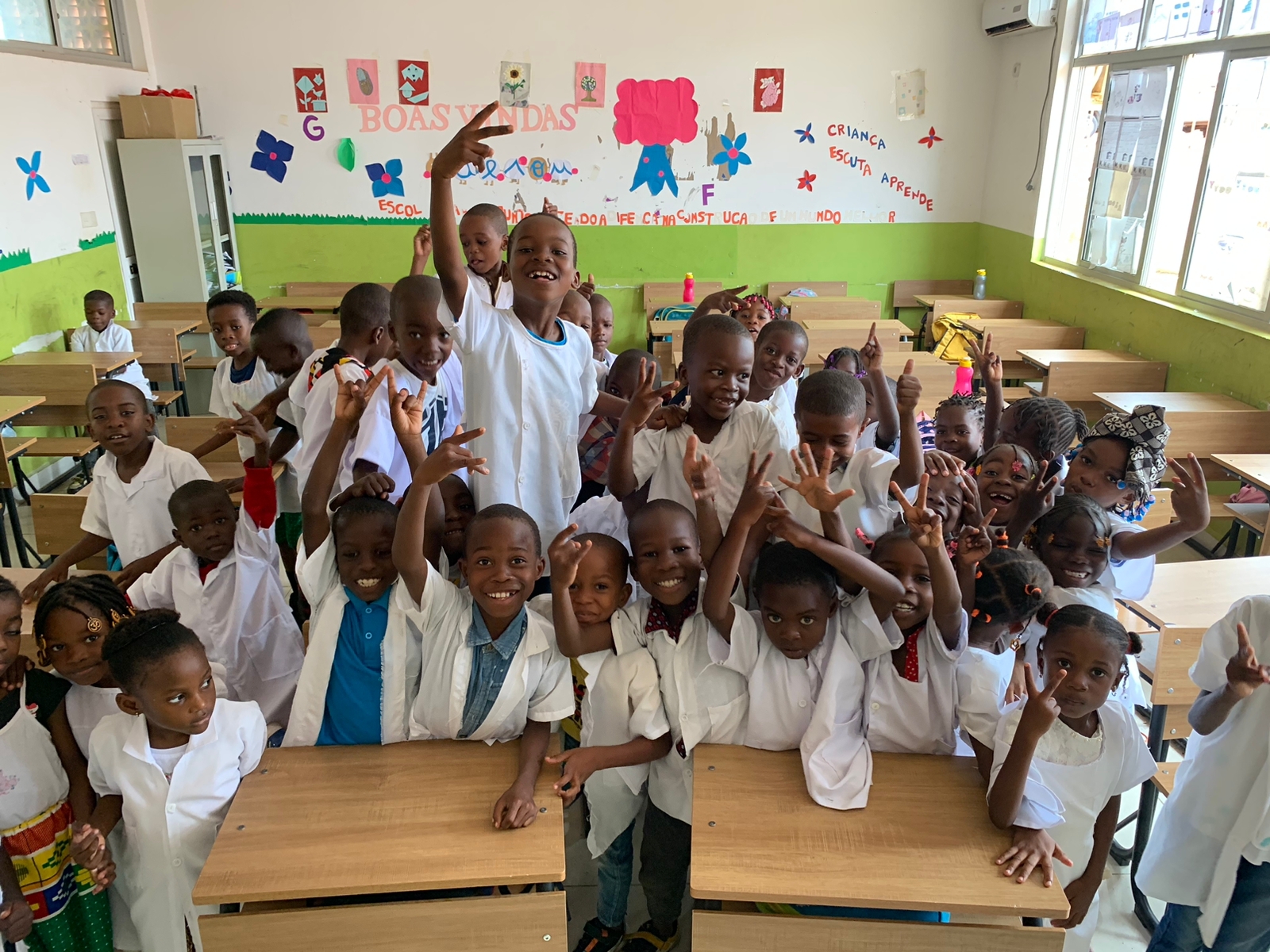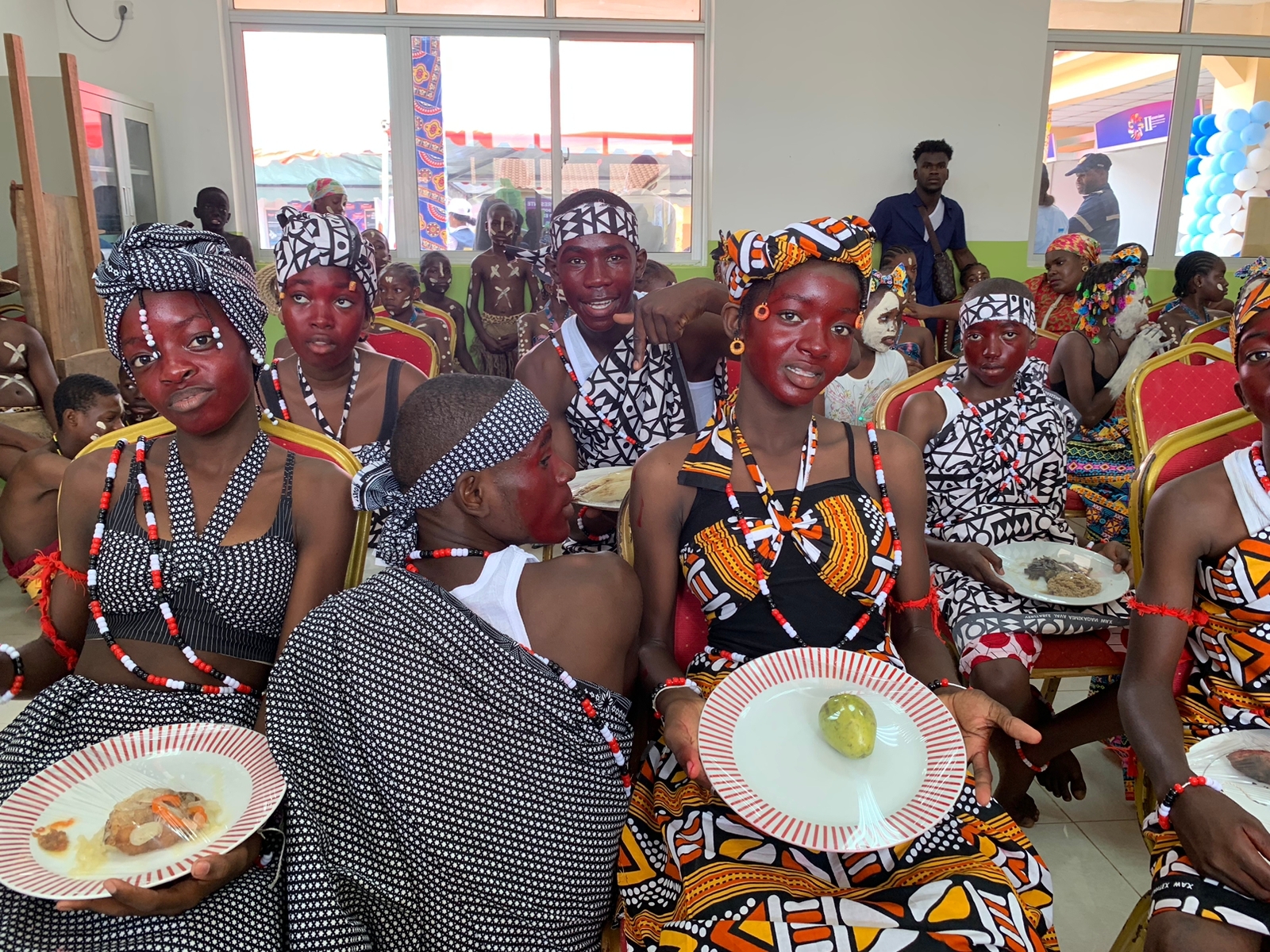
The World Food Programme (WFP) Centre of Excellence against Hunger Brazil participated in the 2nd International Good Practices in School Feeding Seminar of the Community of Portuguese Language Countries (CPLP) in Luanda, Angola, whose theme was “School feeding linked to local production, a crucial strategy to achieve the Sustainable Development Goals” and which took place in the context of the African School Feeding Day, celebrated on 1 March. For two days, representatives from Angola, Brazil, Cape Verde, Guinea Bissau, Mozambique, Portugal, Sao Tome and Principe, East Timor, Centre of Excellence, WFP country office in Angola and civil society participated, in person and remotely, in debates and round tables on various aspects of school feeding programmes.
With the presence of the Angolan Minister of Education, Luísa Maria Alves Grilo, the event started with the panel “School Feeding Programmes Linked to Local Agriculture: Challenges and Opportunities”. Speakers from Angola and Mozambique presented the history of the evolution of their respective school feeding programmes, highlighting the importance of having clear guidelines for linking family farming and school feeding, as well as for formalizing small producers. They also pointed out the importance of logistics for the collection and distribution of food at schools, product diversification and food and nutrition education activities.
Following that, the panel “School Feeding Programmes: Legal Framework and Management Models” took place, moderated by the Centre of Excellence and with the participation of representatives from Brazil, Cape Verde and Guinea Bissau. In their interventions, the speakers reinforced the importance of the existence of legal frameworks that guarantee the continuity and improvement of school feeding programmes and the relevance of institutional and extra-institutional partnerships. The Brazilian model of decentralized management was pointed out as a good practice, as well as the role of school feeding councils and universities in monitoring activities.
The third panel of the event, entitled “Multi-Sectoral Coordination and Community Participation in School Feeding Programmes”, was attended by representatives from Angola, Brazil and São Tomé and Príncipe. While the Angolan representative pointed out the importance of legal basis for the improvement of articulation between different actors involved in school feeding, the Brazilian speaker explained the National School Feeding Programme (PNAE) and its successful experiences, such as family farming purchases, the role of nutritionists and the role of different national actors. Sao Tome and Principe was highlighted as a country that can develop coordination between different sectors, increase local production and reduce dependence on imported products in school meals. In addition, the collaboration with the Centre of Excellence was highlighted in the development of cost-benefit analysis in the country, which contributed to the construction of the national programme.
The WFP Centre of Excellence against Hunger in Brazil was presented to participants and government and civil society representatives, highlighting the Virtual Study Tour: Brazil, conducted in partnership with the Brazilian Cooperation Agency (ABC) of the Ministry of Foreign Affairs and the National Fund for Education Development (FNDE), and the work being developed with Portuguese-speaking countries. In 2022, the Centre organized and streamlined two virtual meetings, focusing on nutrition and school meals linked to local agriculture.
The agenda concluded with the holding of two round tables. The first, focusing on monitoring and evaluation systems for school feeding programmes, was attended by Brazil, Guinea Bissau and Mozambique. The second focused on the theme of financing school feeding programmes and was attended by Angola, Cape Verde and São Tomé and Príncipe.
Good practices fair on school feeding

In commemoration of the eighth anniversary of Africa School Feeding Day, the Angolan government organised a good practice fair on school feeding at the 4104 Maye Maye School Complex in Cacuaco, Luanda. In addition to spaces reserved for CPLP countries and partner entities to share their good practices, the fair was attended by students and local producers, who presented products used in school feeding in different Angolan regions and organised cultural performances.
The event held in Luanda contributes directly to the implementation of the CPLP Strategy for School Nourishment and Nutrition (ESAN-CPLP) and the Action Plan for Multilateral Cooperation in Education. The 1st Good Practices Seminar on School Feeding of the Community of Portuguese Language Countries (CPLP) was held in 2018 in Brazil, also with the participation of the Centre of Excellence. In addition to the CPLP event, the Centre of Excellence participated in a meeting with the Ambassador of Brazil in Angola and a working meeting with the country office at the WFP.




